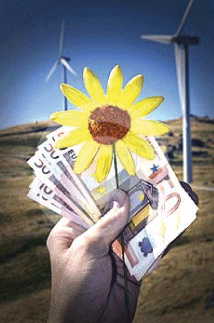First ever systematic set of global human rights risk indices launched
Maplecroft has launched an innovative set of 25 human rights risk indices for 20 different sets of human rights violations, to bring greater understanding and policy focus to the field of business and human rights. Maplecroft, founded in 2001, is a specialist research and advisory company with strong corporate client base and research partnerships with leading international organisations, such as those within the auspices of the United Nations, the World Economic Forum and prominent independent non-governmental organisations.
The set of human rights risk indices includes different types of violations and their risks to business within three broad categories: human security; labour rights and protection; and civil liberties and freedoms. Compilation of all indices is carried out through meticulous analysis of published human rights violations worldwide.
Every business and organisation needs to understand the risk it runs of being complicit with human rights violations. Reputational risks arise from different human rights issues and different aspects of businesses; for example, purchasing of goods and services, sales, logistics, marketing and human resources. The Maplecroft set of human rights risk indices provides a comprehensive insight of human rights issues to enable businesses to assess their risk of complicity.
The Maplecroft Global Report contains quantitative measures such as country report cards and detailed country human rights risk briefings which enables organisations to benchmark a country and gain a better understanding of issues at stake. This information enables companies to easily assess and plan their supply-chain auditing, investment decisions, distribution profile and day-to-day operations. The set of human rights risk indices allows companies and businesses to manage non-financial performance and implement a strategic approach to CSR.
Consumer Action Guide to healty toys
HealthyToys.org, launched recently by the Ecology Center, is based on research conducted by several environmental health organisations and researchers around the country. HealthyToys.org aims to address the failures of the current regulation system -laws and policies – to regulate toxic chemicals in toys and other products, and to set requirements for full testing of chemicals before they are added to most consumer products, including children’s toys.
The current regulation system fails to provide adequate assurance and information to consumers about chemical components in children’s products that may be harmful for health. Despite awareness concerning the dangers of lead and other toxic chemicals, manufacturers are allowed to, and continue, to use them in toys and other children’s products. The only U.S. law restricting lead in toys applies only to paint. Children’s jewellery is ineffectively regulated, and jewellery with high levels of dangerous chemicals is commonly found on store shelves.
HealthyToys.org conducted tests on over 1,200 children’s products and more than 3,000 components of those products, and these have verified that some toys contain a significant percentage of hazardous chemicals including heavy metals such as lead and cadmium.
Currently, the U.S. government and U.S. toy manufacturers do not provide such data to consumers. HealthyToys.org has taken the first essential step in raising awareness and providing information to consumers so that they are able to make informed and better choices when purchasing toys and other children’s products.
Awards recognise and reward sustainable best practices
Sustainability awards are a wonderful way of recognising, rewarding and thereby promoting best practices in sustainability. The European Business Awards for the Environment, organised by the European Commission, play a vital role in demonstrating progress on environmental and sustainable development issues worldwide. The Sustainable City Awards are one of six UK feeder schemes to the European Business Awards. The Awards were established in 2001 by the City of London and are led in partnership with 15 organisations, including livery companies, trade bodies, voluntary sector organisations and businesses. These awards aim to recognise and reward best practice in sustainability, across the three pillars of sustainable development: the environment, social issues and the economy.
The Sustainable City Awards have remained at the top of their field for five successful years and are constantly re-invented to include new awards and categories every year to better reflect current issues in the field.
The Awards are open to business, public and voluntary sector organisations. Past winners include BT, British Land, F&C Asset Management, Sainsbury’s, U Can Do I.T., the London Cycling Campaign and HM Prison Services. The overall winner of the 2007 Sustainable City Awards was the London Fire Brigade for its initiatives to reduce carbon emissions by up to 1,900 tonnes, which have included electric cars, roof-mounted wind turbines and photovoltaic cells.
The Sustainable City Awards categories include Sustainable and Ethical Investment and Asset Management, Sustainable Travel and Transport, Climate Change, Resource Conservation, Sustainable Buildings, Access to Goods and Services for Disadvantaged Communities, Sustainable Procurement, and Environ-mental Improvement in Small & Medium-Sized Enterprises.
Beijing 2008 Olympic Games to have HFC-free refrigeration units
Coca-Cola, the world’s largest non-alcoholic beverage company, has committed to focusing on expanding use of innovative refrigeration technologies to reduce its carbon footprint and increase the sustainability of its business. Coca-Cola’s commitment is to use climate-friendly coolers and vending machines in all official venues of the 2008 Olympic Games to be held in Beijing and six co-host cities throughout China. Calculated based on an expected ten-year life span of the units, the approximately 6,350 climate-friendly refrigeration units to be placed by Coca-Cola in the venues reduces greenhouse gas emissions by approximately 45,000 metric tons.
Coca-Cola has been working together with Greenpeace to develop and commercialise climate-friendly refrigeration equipment and to advance sustainable refrigeration, since the Sydney 2000 Olympic Games. Coca-Cola has invested nearly $40 million in research, development, testing and deployment of sustainable refrigeration equipment. According to the United Nations Environment Programme, HFCs are potent greenhouse gases and some HFCs are 11,700 times more harmful than carbon dioxide (CO2) emissions. Greenpeace has been campaigning for the phase-out of HFC air-conditioners and refrigerators since the early 1990s. Through extensive research and development, CO2 and hydrocarbons have been identified as climate-friendly natural refrigerants. The natural refrigerant used in the units Coca-Cola will provide is CO2 refrigerant.
The company has provided HFC-free refrigeration units at both the Athens 2004 Olympic Games and the Torino 2006 Olympic Winter Games. The Beijing 2008 Olympic Games will mark the first time that 100% of the coolers and vending machines provided by Coca-Cola to all official venues of an Olympic Game will feature hydrofluorocarbon (HFC)-free insulation, HFC-free natural refrigerant, and a proprietary technology called Energy Management System (EMS) that improves energy efficiency by up to 35%.
Commitment to a clean and green energy future: RE
All state-owned companies to file GRI-based sustainability reports: Swedish Government
The Swedish Government has announced new requirements for external reporting, that require all 55 state-owned companies in Sweden to file an annual sustainability report based on the Global Reporting Initiative (G3) Guidelines before the 31 March each year from 2009, in order to improve the sustainability performance of state-owned companies and ensure transparency in the use of public money. Sweden is the first country worldwide to introduce requirements for sustainability reporting of this nature by its state-owned companies.
The “Global Reporting Initiative†(GRI) is a large multi-stakeholder governed institution made up of a network of thousands of experts worldwide, who participate in GRI’s working groups and governance bodies, use the GRI Guidelines to report, access information in GRI-based reports, or contribute to develop the Reporting Framework.
The GRI G3 Sustainability Reporting Guidelines are the world’s most widely used and recognised sustainability reporting framework, and provide companies with an excellent internal management tool. Adopting these Guidelines enable companies to enhance their brand, reputation, marketplace differentiation from other companies and gives them a competitive edge over companies not reporting.
NY launches the Green Exchange
New York Mercantile Exchange parent Nymex Holdings Inc., the world’s largest energy exchange, and a group of Wall Street trading houses have announced launch of an Environmental Exchange, also known as the Green Exchange, for trading environmental products, including carbon credits. Green Exchange partners include heavyweights such as Evolution Markets Inc., Morgan Stanley Capital Group Inc., Credit Suisse, JPMorgan, Merrill Lynch, Tudor Investment Corp., ICAP and Constellation Energy. The exchange is the first time an emissions bourse has brought together all the potential players looking to trade greenhouse credits, including traders for oil, power and gas companies and agriculture and financial futures traders and bilateral traders.
The Green Exchange will offer a comprehensive range of environmental futures, options and swaps contracts focused on solutions to climate change, renewable energy, and other environmental challenges. It will begin trading during the first quarter of 2008, and will be regulated by the U.S. Commodities Future Trading Commission through the NYMEX.
The Green Exchange initially intends to offer trading in global carbon-based contracts, such as carbon allowances under the European Union Emissions Trading Scheme, carbon credits under the U.N. Clean Development Mechanism, and verified greenhouse gas emission reductions used in accordance with voluntary carbon standards. It will also offer contracts for U.S. SO2 and NOx emissions allowance trading programs, as well as contracts for national Green-e certified voluntary renewable energy certificates.
The Green Exchange promises to be a powerful initiative for leveraging financial markets, which is a vital part of addressing environmental challenges such as climate change and global warming. It will be the driving force behind global efforts to improve the environment.
Finance industry sets higher sustainability standards for project financing
HSBC, one of the largest banking and financial services organisations in the world, is introducing new initiatives to reduce the environmental impact of its day-to-day operations, and to ensure that project financing is done in a sustainable fashion. HSBC applies a Sustainability Risk Framework which includes a set of policies including the Equator Principles, a set of voluntary guidelines developed for assessing and managing sustainability risks (environmental and social risks) which arise when financial support is provided to clients.
The Equator Principles have become a global market standard based on best practice, and have achieved a critical mass of participation, with 54 banks as signatories, and cover 90% of global project finance transactions. Adoption of Equator Principles by banks reflects their commitment to report publicly about their implementation process and experience, and the number of transactions that are screened.
HSBC recently took its reporting on the Equator Principles to a new level and established a new industry standard when it had its adherence to the principles independently verified by Det Norske Veritas Certification BV (DNV), an international provider of certification services. This decision to have a third party audit was taken to ensure greater transparency and assurance. HSBC has been the first bank to take this step. Jon Williams, Head of Group Sustainable Development HSBC Holdings believes that, “this will be part of a broader trend of increased reporting and independent verification of non-financial dataâ€, and other financial institutions will follow suit.







